San
Diego Jewish World
Friday
Afternoon, July
6, 2007
Vol. 1, Number
67
|
Archives Event Tracker HOME Jewish Directory Jewish Grapevine Jews in the News News Sleuths Sports |
|
|
ADL says
revised Catholic mass sets back relations with the Jews nearly 40 years
Abraham H. Foxman, ADL National Director, in Rome for meetings with Vatican officials, issued the following statement: "We are extremely disappointed and deeply offended that nearly 40 years after the Vatican rightly removed insulting anti-Jewish language from the Good Friday Mass, that it would now permit Catholics to utter such hurtful and insulting words by praying for Jews to be converted. This is a theological setback in the religious life of Catholics and a body blow to Catholic-Jewish relations. It is the wrong decision at the wrong time. It appears the Vatican has chosen to satisfy a right-wing faction in the Church that rejects change and reconciliation. |
|
ADL noted that in
1959, Pope John XXIII removed the term "perfidious Jews" from the controversial
Good Friday Latin Mass. In the 1970 Missal of Paul VI, which is currently used,
the prayer for the conversion of Jews was replaced by a positive prayer
recognizing the Jews' eternal covenant with God, a principle to which
Pope John Paul II
was deeply committed.
The preceding story
was provided by the Anti-Defamation League. Illustration came from
Wikipedia.
Mikulanis says ADL jumped gun, got its facts wrong
SAN DIEGO—Monsignor Dennis Mikulanis, vicar for inter-religious and ecumenical
affairs for the Roman Catholic diocese of San Diego, said in response to the
story issued by the Anti-Defamation League above that "the church has not
restored anti-Semitic language."
He said that what Pope Benedict XVI actually did was to permit churches greater
freedom in the use of the Latin Rite of Mass "according to the 1962 usage of
Pope John Paul XXII."
Mikulanis said that in 1962, "Pope
John XXIII deleted anti-Semitic wording from the liturgy. In 1963 he stopped
the Good Friday liturgy in St. Peter's Basilica to make sure that the 'old'
language was gone. It was."
The monsignor said that ADL's director Abraham Foxman failed to look before he
leaped. He noted that Foxman issued his comment a full day ahead of the
Vatican's official announcement which had been scheduled for noon July 7 in
Rome. He called upon the ADL to issue a retraction.
|
Israel and Middle East |
20 British MPs want
negotiations with Hamas
LONDON (Press Release)—A day after the release of a kidnapped BBC reporter by
the Hamas government in Gaza, 20 members of the UK parliament (MPs) have called
for talks with the Islamist group Hamas.
The MPs, from across the political spectrum, presented a motion in the House of
Commons urging international engagement with Hamas, which the British government
has declared a terrorist group. Hamas' "pivotal role" in ending the four-month
abduction of Alan Johnston was a sign that Hamas should be part of Palestinian
reconciliation efforts, the motion said.
Johnston himself had "acknowledged the pivotal role played by Hamas in
condemning the kidnapping and securing his release," the document said.
After Johnston's release on Wednesday,
Britain's new foreign secretary, David Miliband, also "fully acknowledged the
crucial role" played by Hamas and its leader, Ismail Haniyeh, in securing
Johnston's release, though no official softening of the government's stance
against Hamas has been announced.
“The international community's support for Mahmoud Abbas as the legitimate
president of Palestine should not preclude contact with Hamas," the MPs’ motion
states.
The preceding story was provided by the World Jewish Congress
Israelis believe PM should always be
Jewish
JERUSALEM (Press Release)—A poll commissioned by the German Friedrich Naumann
Foundation (FNS) in Israel has revealed a wide gap between the principles
Israelis have on various issues and their willingness to see such principles
implemented, especially with regards to minority rights.
The survey, conducted among 609 Hebrew, Russian and Arabic-speaking Israelis, found that 55 percent of respondents support safeguarding the rights of Israeli Arabs. However, 64 percent believe that only Jews should be allowed to run for the office of Israeli prime minister. Although 97 percent think that tolerance towards the other is important, a third of the public believes Arabs and Jews should live in separate neighborhoods.
When it comes to Israel's democratic character, 37 percent of Hebrew and Russian-speaking respondents said that the country's Jewish nature was more important than its democratic character. Some 47 percent of the Arabic-speaking population believe that Israel's democratic nature is more important than its Jewish character. In addition, according to the poll 75 percent of Israelis (including 21 percent of the Arab public) support lifting all limitations on counter-terrorism operations even if this entails violating suspects' human and civil rights.
The FNS representative in Israel,
Hans-Georg Plack, was quoted by “Haaretz” as saying that "the poll's
contradictory results illustrate that the Israeli public attributes the highest
importance to liberal values and democratic institutions, despite the lack of
willingness to implement these principles in some fields. This probably stems
from the unique and difficult security situation in the region, which leads to a
heightened need for security and for protecting democracy."
The preceding article was provided by the
World Jewish Congress
(Return to top)
Violence in Gaza during
Israel's incursion
source of deep concern to Secretary-General
UNITED NATIONS, New York (Press Release)— Secretary-General Ban
Ki-moon "is deeply concerned at the violence reported in Gaza in the context of
the recent
Israeli incursion," Marie Okabe, deputy spokesperson said today.
She cited reports indicating that during heavy exchanges of fire, including
the use of tank fire in populated areas, a number of Palestinian civilians were
injured and at least one was reported killed.
“The Secretary-General calls on all parties to do their utmost to protect
civilians and uphold international law,” she said. “In addition, Palestinian
rocket fire into Israel must stop.”
Okabe said Ban Ki-moon believes “calm must be restored in order to focus all
energies on finding a just and lasting peace in the Middle East.”
The preceding story was based on a summary
provided by the United Nations
(Return to top)

Wiesenthal Center condemns Hugo Chavez
for pro-Iran, anti-U.S., anti-Israel
rhetoric
LOS ANGELES—The Simon Wiesenthal Center
condemned statements by Venezuela’s President Hugo Chavez during his recent
visit to Iran.
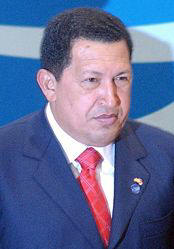 During
a joint press conference with Iranian President Mahmoud Ahmadinejad, Chavez
defended Iran’s nuclear program and added, “The barbarians are those who
occupied and destroyed Iraq, those who assault the Palestinian people, those who
went from Europe to destroy our Latin American civilization,” in reference to
the Inca, Maya and Azteca peoples.
During
a joint press conference with Iranian President Mahmoud Ahmadinejad, Chavez
defended Iran’s nuclear program and added, “The barbarians are those who
occupied and destroyed Iraq, those who assault the Palestinian people, those who
went from Europe to destroy our Latin American civilization,” in reference to
the Inca, Maya and Azteca peoples.
“The delibarate forgetting of the Nazi
Holocaust against the Jewish people, a paradigm of genocide in the modern age,
Hugo
Chavez
seems like a genuflection exercise from Chavez to his host, who never wastes an
opportunity to deny the Holocaust,” said Shimon Samuels, Director for
International Relations of the Simon Wiesenthal Center and Sergio Widder, Latin
American Representative.
Chavez also commended “the deep spiritual wealth of Iranian policies,” and announced Iran’s incorporation as observer at the Alternativa Bolivariana de las Américas (Bolivarian Alternative for the Americas), an integration project promoted by Venezuela in opposition to the Free Trade Agreement of the Americas.
“Where does Chavez find the spiritual
wealth; in the calls for the destruction of Israel, in the denial of the Nazi
Holocaust, in Iran’s involvement in terrorist attacks in Argentina? We condemn
these statements by Chavez and call on Latin America to reject the intervention
of a terrorist state such as Iran in any regional integration process,” Samuels
and Widder concluded.
(Return to top)
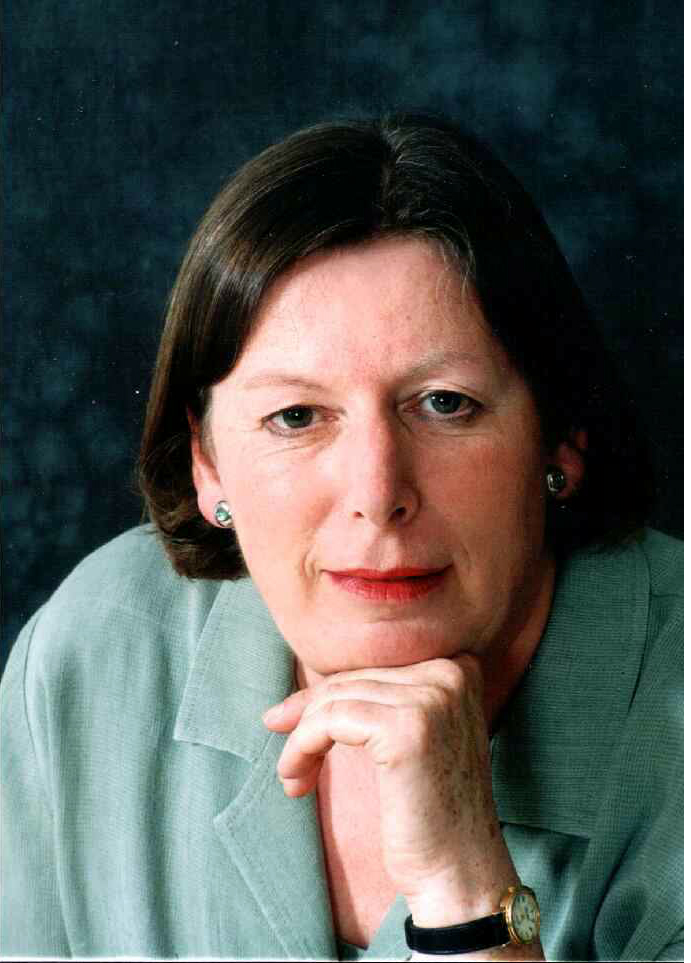 Jerusalem Diaries
Jerusalem DiariesJudy Lash Balint |
Last Jews of Libya
her first selection at film festival
JERUSALEM—It's the first full day of the Jerusalem International Film Festival
and a couple of hundred Israelis and visitors spend more than an hour of a
beautiful July Friday afternoon in the auditorium of the Menachem Begin Heritage
Center glued to the screen by a moving documentary entitled The Last Jews of
Libya.
The film is just one of more than 200 screenings that will take place over the
next 10 days as one of the most anticipated cultural events of the year brings
to the city world-renowned directors, actors and screenwriters who mingle with
Israeli film buffs and directors of Jewish film festivals from all over the
world.
It's always excruciating to sit down at the end of June with the 280 page
catalog and a calendar and try to come up with a realistic number of films that
will squeeze into your life in July.
My list certainly got off to a good start with The Last Jews of Libya.
Produced by Aryeh Bourkoff and his mother, Libyan-born Vivienne Roumani-Denn,
the film chronicles three generations of Jews with roots in Benghazi, Libya.
Based on the memoirs of Vivienne's mother, Elise Roumani, that were discovered
after her death and enhanced by archival footage and interviews, we see 20th
century history through the prism of a proud Jewish community that had prospered
in a Moslem country for centuries.
This is not the story of poor Eastern European Jews living in shtetls in
a predominantly peasant culture. The Jewish families of Benghazi were worldly,
sophisticated business people who nevertheless were strong adherents to Jewish
tradition and by and large resisted the assimilationist tendencies of their
educated Ashkenazic brethren.
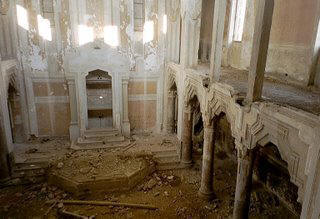 Still,
the colonial
powers of the 20th century combined
with the long reach of the Nazis and Arab anger over the founding of the state
of Israel all converged to lay waste to this once vibrant Jewish community.
Today, unlike Morocco and neighboring Tunisia, there's not a single Jew left in
Libya. Many in the audience at the Festival screening are Jews of Libyan
descent, who murmur
Still,
the colonial
powers of the 20th century combined
with the long reach of the Nazis and Arab anger over the founding of the state
of Israel all converged to lay waste to this once vibrant Jewish community.
Today, unlike Morocco and neighboring Tunisia, there's not a single Jew left in
Libya. Many in the audience at the Festival screening are Jews of Libyan
descent, who murmur
Destroyed synagogue in Libya
appreciatively at the Arabic and Italian expressions used by some of the
interviewees and gasp as the horror of internment camps and Arab pogroms are
recounted.
(Jump to continuation)
|
Europe |
Moscow mayor and council change minds about
City Center location for new Sephardic synagogue
MOSCOW (Press Release)—The city council and mayor have decided to build a
kindergarten on a site previously promised to the Sephardic Jewish community for
a new synagogue.
Mayor Yuri Luzhkov has signed off on the council's decision, which effectively
overrules the proposed synagogue project on Mantulinskaya Street, in downtown
Moscow, the “Interfax” news agency reports.
"According to the mayor's decree, the earlier document booking the land plot on
Mantulinskaya Street for the Moscow Sephardic community is declared null and
void," a spokesperson for the city council said in a statement on Thursday,
adding that Luzhkov had ordered a new land plot for the proposed synagogue and
cultural center outside the city center.
The preceding story was provided by the World
Jewish Congress
(Return to top)
|
United States of America |
Activated
military would receive refunds of
their college tuition under Susan Davis bill
WASHINGTON (Press Release) – Service members who are activated while attending
college will not have to worry about losing their tuition under a bill
introduced by Congresswoman
Susan Davis
(Democrat, California). The Veterans Education Tuition Support Act (H.R. 2910)
would require colleges and universities to refund tuition of a service member is
activated while in school.
 “The
men and women in our military already make so many sacrifices defending this
nation,” said Davis, chairwoman of the Military Personnel Subcommittee. “Their
college educations should not be yet another sacrifice. I believe it is
important to put these protections into law. Any service member who volunteers
for military service deserves certain rights. This legislation compliments the
laws already passed protecting
“The
men and women in our military already make so many sacrifices defending this
nation,” said Davis, chairwoman of the Military Personnel Subcommittee. “Their
college educations should not be yet another sacrifice. I believe it is
important to put these protections into law. Any service member who volunteers
for military service deserves certain rights. This legislation compliments the
laws already passed protecting
U.S. Rep. Susan
Davis
employment to also cover educational status.” Most colleges and universities refund tuition and fees to students when the activation occurs during the academic calendar. However, instances have occurred when a service member has not been reimbursed.
Thousands of military reservists have been activated to fight in Iraq and Afghanistan directly from their college campuses. Unfortunately, students who serve in the military face unique hardships when called upon to defend the United States.
Instances exist when a service member has received failing grades after leaving for service in the middle of the quarter or semester – even after notifying school administration. In one case, a university dismissed a student while he was serving in Iraq.
The Veterans Education Tuition Support Act amends the Service members Civil Relief Act to require colleges and universities to refund service members’ tuition and fees for any unearned credit for the semester or quarter when they are activated.
The legislation also requires colleges and universities to accommodate students when they return and give them identical academic and educational standing.
It applies a 6-percent interest rate cap to student loans of service members, and the bill allows 13 months to begin paying off student loans after a servicemember returns home.
A Senate version was introduced by Sen. Sherrod Brown (Democrat, Ohio). H.R. 2910 has been referred the Veterans Committee. The legislation was written from the recommendations made by Iraq and Afghanistan Veterans of America based on the experiences of the service members who belong to the group.
The preceding story was provided by the office of U.S. Rep. Susan Davis
|
Nancy Harrison of Anderson Travel
presents:
Adventures in Cruising |
Aboard Holland America Ryndam |
|
Commentary |
Joe Lieberman, in
Wall Street Journal op-ed,
declares Iran is waging 'proxy war' against U.S.
(Editor's Note: The following commentary by Sen.
Joseph Lieberman appeared in this morning's Wall Street Journal and was released
to the news media today on Sen. Lieberman's website. It was the topic of
questions posed to U.S. State Department Sean McCormack today, as reported below
in "News Sleuths." In an interview with CNN, Secretary of State Condoleezza Rice
also discussed a response to Iran, excerpted in "News Sleuths.")
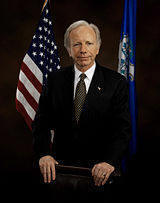 By
U.S. Sen. Joseph Lieberman
By
U.S. Sen. Joseph Lieberman
WASHINGTON, DC—Earlier this week, the U.S. military made public new and
disturbing information about the proxy war that Iran is waging against American
soldiers and our allies in Iraq.
According to Brig. Gen. Kevin Bergner, the
U.S. military
Sen.
Joseph Lieberman
spokesman in Baghdad, the Iranian
government has been using the Lebanese terrorist group Hezbollah to train and
organize Iraqi extremists, who are responsible in turn for the murder of
American service members.
Gen. Bergner also revealed that the Quds Force -- a special unit of the Iranian Revolutionary Guard Corps whose mission is to finance, arm and equip foreign Islamist terrorist movements -- has taken groups of up to 60 Iraqi insurgents at a time and brought them to three camps near Tehran, where they have received instruction in the use of mortars, rockets, improvised explosive devices and other deadly tools of guerrilla warfare that they use against our troops. Iran has also funded its Iraqi proxies generously, to the tune of $3 million a month.
Based on the interrogation of captured extremist leaders -- including a 24-year veteran of Hezbollah, apparently dispatched to Iraq by his patrons in Tehran -- Gen. Bergner also reported on Monday that the U.S. military has concluded that "the senior leadership" in Iran is aware of these terrorist activities. He said it is "hard to imagine" Ayatollah Ali Khamenei -- Iran's supreme leader -- does not know of them.
These latest revelations should be a painful wakeup call to the American people, and to the U.S. Congress. They also expand on a steady stream of public statements over the past six months by David Petraeus, the commanding general of our coalition in Iraq, as well as other senior American military and civilian officials about Iran's hostile and violent role in Iraq. In February, for instance, the U.S. military stated that forensic evidence has implicated Iran in the death of at least 170 U.S. soldiers.
Iran's actions in Iraq fit a larger
pattern of expansionist, extremist behavior across the Middle East today. In
addition to sponsoring insurgents in Iraq, Tehran is training, funding and
equipping radical Islamist groups in Lebanon, Palestine and Afghanistan -- where
the Taliban now appear to be receiving Iranian help in their war against the
government of President Hamid Karzai and its NATO defenders.
(Jump
to continuation)
Arab rhetoric often sounds very
familiar
By Alex
Grobman, PhD
ENGLEWOOD, New Jersey —Anyone
studying the history of the Arab/Israeli conflict has to be struck by the “déjà
vu” effect. Arab tactics are repeated to the point where, in many cases, they
are practically predictable. As Yogi Berra, the New York Yankee sage, would say,
“it is déjà vu all over again.” For example, in 2005 the false charge that
Americans at Guantanamo Bay tore up the Koran should not have come as a
surprise. The same accusations were made against the British when they
administered Palestine. The difference is that the British dismissed them as
propaganda.
In June1938, Sir John Shuckburgh, Deputy Under-Secretary of State for the Colonies, reported to the Permanent Mandates Commission of the League of Nations, that the British forces engaged in fighting terrorism in Palestine “have been subjected to a constant stream of vilification in newspaper articles and pamphlets widely circulated outside Palestine. For the most part, the charges…are sufficiently discredited by their own obvious extravagance. I would only quote as an instance the ‘torn Koran,’ which is a regular feature of such propaganda and is simply manufactured evidence intended to provoke religious feeling.”
When Arabs are involved in a terrorist action, their leaders denounce it, but then justify it. On September 26, 1937, L. Y. Andrews, the acting District Commissioner of the Galilee District, and British Police Constable McEwen were murdered in Nazareth. Other “murderous attacks” occurred in the four administrative districts of Palestine. According to an official British report, the Arabs condemned these outrages, but the British noted that the “Arabs felt they should struggle to defend their land, and that, to them, the men who were regarded by others as extremists and terrorists were patriots and heroes.”
In response to
the suicide bomber who detonated himself outside the central bus station
in Be'er Sheva on August 28, 2005, Haaretz reported that Khaled al-Batch, an
Islamic Jihad leader in Gaza, said he did not know who initiated the attack:
"But it came as a natural reaction to the occupation crimes. It is our right to
retaliate."
Another typical Arab refrain is that if only the Israelis made this concession
or refrained from that provocation, peace would reign. In a communication from a
member of the outlawed Arab High Committee to a member of the Mandates
Commission in 1937, the author said the British could end these “extremist
activities” if they would stop the immigration of Jews into Palestine and thwart
the partition of the country. In his view, “there was not an honest man in the
world who, in similar circumstances, would not defend his country, as the Arabs
were doing.” The British were convinced that the majority of the Arabs wanted to
live in peace, but “it was difficult for them to make their influence felt.”
Even after the British issued the White Paper of 1939 that severely limited the number of Jews who could enter Palestine for five years, and even after the Arabs thwarted partition, terrorist activities did not end. (Jump to continuation)
Features |
 Jews
in the News Jews
in the News
-------------------------------------------------------------------------------------------------------- Like you, we're pleased when members of our community are praiseworthy, and are disappointed when they are blameworthy. Whether it's good news or bad news, we'll try to keep track of what's being said in general media about our fellow Jews. Our news spotters are Dan Brin in Los Angeles, Donald H. Harrison in San Diego, and you. Wherever you are, if you see a story of interest, please send a summary and link to us at sdheritage@cox.net and we'll acknowledge your tip at the end of the column. To see a source story click on the link within the respective paragraph. |
QUESTION: Out of all of the countries posing threats to America
right now, including Russia, Iran, Korea, China, which do you feel is the
most dangerous?
SECRETARY RICE: Well, I would say that -- Russia I don't consider
even in that category. Let me be very clear, we have our differences with
Russia and some of those differences produce conflict, but by no means is
this the Soviet Union. We have far more areas of cooperation with Russia
than we have areas of conflict. But when I
look at Russia, I think that there's a very good reason to have a good
relationship with Russia and it's to deal, for instance, with one of the
other countries on your list, Iran. This is a relationship that is, I think,
increasingly difficult and a country that is increasingly dangerous. Its
support of terrorism around the world in places like --supporting Hezbollah
in Lebanon, supporting very radical elements of Hamas in the Gaza Strip in
the Palestinian territories, what Iran is doing in the south of Iraq, where
it is supporting and arming militias that are then threatening our force
presence in Iraq. If you
look at Iran's pursuit of the technologies that would lead to a nuclear
weapon despite Chapter 7, the most serious Security Council resolution you
can have -- two Chapter 7 resolutions against Iran -- they continue to
pursue these policies, not to mention the crackdown on their own population
that has caught up some Iranian Americans, one woman who was just going home
to visit her elderly mother. So this is a very dangerous state with very
dangerous policies. And we need the help and support and intense efforts of
the international community to deal with Iran. QUESTION:
Should the U.S. consider military retaliation?
SECRETARY RICE: Well, the President's never going to take his
options off the table and frankly, no one should want the American President
to take his options off the table. But the President's made clear that we
believe that diplomatic solutions to the Iranian problem are very much
possible. And if the international community acts with the kind of intensity
and the kind of commitment that it can, we will solve the problem in Iran. Right now
-- something that would perhaps be of interest to your listeners, we are
working on financial measures that really will say to the Iranians, "You
cannot use the benefits of the international financial system and continue
to pursue a nuclear weapon." And frankly, people are looking differently at
investment risk in Iran. People are looking differently at reputational risk
in Iran. When we know that there are Iranian banks, like Bank Sepah, that
was actually named in a UN Security Council resolution, that are all tied up
with terrorism and weapons of mass destruction, I think international
financial institutions that depend a lot on reputation are not going to want
to be even close to a country that is under a Chapter 7 resolution. And so
we have means at our disposal to change Iranian behavior.
*Chula Vista City Councilman Steve
Castaneda, who was arraigned on 15 charges of perjury, preparing false
documents, and failing to report his income on state disclosure forms, has
contended the case against him is a "political witch hunt" brought against
him by District Attorney Bonnie Dumanis. The story by Tanya
Mannes is in today's San Diego Union-Tribune.
*Developer Aaron Feldman, central figure in the controversy over the
over-height building at Montgomery Field, is the subject of
a comprehensive profile today by Will Carless and Andrew Donohue
in the Voice of San Diego.
Feldman declined being interviewed but other members of the Jewish community
either were quoted or spoken about including Alan Bersin, Steve Cushman,
Bob Filner, Susan Golding and Sanford Goodkin. The article
also mentioned Feldman's ongoing divorce proceedings against his wife
Elena, an unsuccessful effort to establish a Jewish country club, and an
$800,000 contribution to the San Diego Jewish Academy. Here is
the link.
*Steve Harvey, in a
column in the Los Angeles Times, notes that Mayans predicted that
the world would end December 21, 2012. It reminded him of some other
famous apocalyptic predictions including one by a Jamaican Jew that all the
tsuris would be over, mon, on October 17, 1992.
*In responding to the criticism by Hillary Clinton of the grant of
presidential clemency to I. Lewis 'Scooter' Libby, White House
spokesman Tony Snow said: "I don't know what Arkansan is for chutzpah
but this is a gigantic case of it." He said her husband, former President
Bill Clinton, pardoned 140 people in the closing hours of his presidency,
including fugitive financier Marc Rich. The Associated Press
story is in today's San Diego Union-Tribune.
Another version by
Richard B. Schmitt and James Gerstenzang
is in today's Los Angeles Times.
*A dispute among the various branches of the U.S. military over which,
in any, should be in control of various pilotless aircraft, or drones, used
over battlefields, may have impacts on the various manufacturers of these
drones. For example Israel Aircraft Industries and TRW-Northrop
Grumman manufacture the Hunter, used by the U.S. Army; General Atomics
Aeronautical Systems of San Diego developed the Predator used by the Air
Force, and the Global Hawk, used by the Air Force, was developed by Ryan
Aeronautical of San Diego and Northrup Grumman. The Associated Press
story by Lolita C. Baldor is in today's San Diego Union-Tribune.
*An unidentified spokesman for Israel Defense Forces was quoted by
Isabel Kershner of the New York Times News Service in a
story in today's San Diego Union-Tribune about air strikes in
Gaza in which 11 insurgents were killed as questioning whether a wounded
cameramen who traveled with Hamas fighters should be considered a
journalist. Such cameramen, he said, gather intelligence and sometimes arm
themselves.
*The movie about slain Wall Street Journal reporter Daniel Pearl
has had ho-hum results at the box office, notwithstanding the efforts of
Angelina Jolie and Brad Pitt to promote A Mighty Heart. The
story by David L. Coddon is in today's San Diego Union-Tribune.
(Return to top)

 News Sleuths:
Iran,
Saudi Arabia, Gaza
News Sleuths:
Iran,
Saudi Arabia, Gaza
Watching the media gathering
and reporting the news
of Jewish interest
Date: Released July 6, 2007
Time: Uncertain
Interviewer: Maria Bartiromo, CNN's Closing Bell
Interviewee: Secretary of State Condoleezza Rice
Source: State Department Transcript
Subject: Iran, Saudi Arabia
The Jewish Grapevine

|
AROUND THE TOWN—Nine-year-old Julia Vanderwiel shares the role of Toto the Dog with Molly O'Meara this summer in the California Young Actors Conservatory production of The Wiz at the Lyceum Theatre in Horton Plaza. She is the daughter of Staci Wax-Vanderviel and granddaughter of Charles Wax...
CYBER-REFERRALS—Howard Feldman sends us a "Jewlarious" video about what
would happen if the boycotters decided to not use any products invented or
developed by Israelis or Jews. Here's
the link ...
Bruce Lowitt spotted a June 30 story by Sarah Rothwell in the Tampa Tribune
about a couple who raised their children in a Reform Jewish congregation, while
the mother continued to pray at her Catholic church. It worked out better
than you might expect.
Here is a link. ...
Hillel Mazansky has found a fantasy piece about how the communications
revolution all began back in the days of Abraham. Here's
the link.
|
Greater San Diego Region |
SAN DIEGO (Press Release)—The San Diego Natural History Museum is seeking volunteers for its exhibition, Dead Sea Scrolls, which will continue from now through December 31. This exhibition is the Museum’s largest undertaking to date and volunteers are needed:
· To direct groups (groups range in size from 10–400).
· To assist visitors throughout the Museum.
· To provide administrative support associated with the exhibition.
Bilingual volunteers, especially with skill in American Sign Language and/or Spanish are needed. Volunteers are needed at least four hours per week for three months.
The Museum trains all its volunteers: Dead Sea Scrolls training occurs on a regular basis and both daytime and evening sessions are available. To apply go to www.sdnhm.org/volunteers and complete an online application. If you do not have access to the internet please call (619) 255-0245.
The Museum’s Dead Sea Scrolls is the largest, most comprehensive
exhibition on this topic ever assembled. Created and assembled by the Museum, it
includes authentic Dead Sea Scrolls, ancient illuminated manuscripts, artifacts,
landscape and aerial photography, and interactive displays about science,
discovery, and exploration. The Dead Sea Scrolls—objects of great mystery,
intrigue and significance—are among the greatest archaeological discoveries of
the 20th century. For more information, visit
www.sdscrolls.org.
Etz Rimon enrollment opens for Hebrew School
CARLSBAD, California (Press Release)—The Hebrew
School of Carlsbad's Temple Etz Rimon has opened enrollment for the coming
school year. Judaica classes are offered for grades K-6on Sunday afternoons and
Hebrew Language classes during weekday afternoons.
The Judaica and Hebrew programs offer the children a place to learn, grow, build
community and be challenged as they become more mature members of our society,
commented George McNeil, the school director.
Rabbi Mark Goldberg will be the full-time instructor of the upper class while
being a resource for the beginning and intermediate groups. Temple Etz Rimon's
youth education focuses upon “giving our children a sense of Jewish identity
andimparting to them tools they may use in their lives, both at Temple and in
the larger community.
For more information contact McNeil at (760) 757-9239.
Judaism |
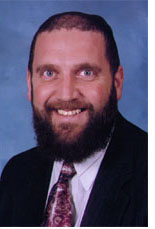 Rabbi
Baruch Lederman Rabbi
Baruch Lederman
Amazing tales of Judaism |
Dvar Torah: Pinchus
SAN DIEGO—Originally, Hashem (G-d) told Aharon that he and his children were to be kohains (high priests), and any children born to them in the future would automatically be kohains. One of Aharon's children, Elazar, already had a child Pinchus at that time. Since he was a grandchild, not a child; and would not be born in the future because he was already born, Pinchus was excluded from being a kohain - there was no grandfather clause. This was surely a disappointing and frustrating situation for Pinchus.
Eventually, Pinchus was appointed a kohain, as this parsha (weekly Torah portion) describes. We often have setbacks and disappointments; but if we have patience, persistence and a little faith, things eventually come our way as the following true story illustrates:
Noa was a young lady who, with great courage and personal conviction, moved to Israel from San Diego. She was living in the small town of Tzfat, which she loved. It wasn't easy for her, but with great dedication she struggled to make ends meet, all the while waiting, hoping and praying to meet her bashert (intended) and begin a Jewish family.
Because of the intense difficulties of supporting herself, she was faced with possibility of having to leave Tzfat to go to a larger city in Israel or worse yet, to return to San Diego.
She consulted a Rabbi who advised her to stay in Tzfat. With great faith, she
accepted that advice even though on the surface, it didn't seem to make sense,
at least not good business sense.
Yosef was living in Ashdod, working at a job there, and devoting himself to
daily Torah study. He was at a crossroads, not sure what path to take in terms
of his future. He consulted a Rabbi who told him to return to the holy city of
Tzfat where his family lived and seek his future there. Everyone whom he
mentioned this to, said it was crazy, as Ashdod was a thriving city with a
booming economy full of opportunity, while Tzfat had little to offer in the way
of anything. He was undeterred. The Rabbi said go to Tzfat, and off to Tzfat he
went.
After arriving in Tzfat, his mother mentioned to him a wonderful girl named Noa,
whom she had met a year ago but had lost touch with. If only she could find her
again, she would be perfect for her son Yosef. That same day Noa went to the
famous grave site of Shem V'Ever and prayed to Hashem for a shidduch
(match). There was a big Torah lecture being given that night, so she went
straight from the grave site to the lecture.
____________________
A primer on the 'documentary hypothesis' of Torah
By Irvin Jacobs, M.D.
DEL MAR,
California—The “documentary hypothesis” is a prevailing scholarly understanding
of the literary Hebrew Bible, since the “observations” published in 1883 by the
German scholar Julius Wellhausen. It purports that the Hebrew Bible consists of
four main contributors, labeled respectively, (1) J or Yahweh, (2) E or Elohim,
(3) P or Priestly, and (4) D or Deuteronomic, sources. Each source has certain
favorite characters, which source tried to favor in “his” story version, which
translates to the political agenda of each.
Briefly the J source, which uses the yad-hey-vav-hey name of G-d, is believed to
have arisen in the southern kingdom of Judea, and favors the Aaronid priests and
the Davidic royal line from the southern tribe of Judah.
The E source, which uses the generic Elohim name of G-d, is believed to have
arisen in the northern kingdom of Israel. It emphasizes as heroes Moses and
Joshua and the Northern tribes, and puts down the priestly line of Aaron in
favor of the priests from Shiloh. Both J and E advocate a personal G-d.
The P source is attributed to the southern kingdom’s Aaronid priestly line in
Jerusalem. In P’s writings, Aaron is hero, and the only approach to G-d is via
this priesthood. The bulk of the Torah laws, e.g. all of Leviticus and much of
the other laws and passages in Genesis and Numbers are attributed to P.
The D source, which is assigned a later date of origin than the first four books
of Torah, tends to ignore P sources and extends the lines of thought of J and E,
particularly E. It considers that all Levites are priests and shares the law
codes from Shiloh in the north. The D writer(s) also is/are credited with
recording the subsequent six books of the Bible, Joshua, Judges, Samuel I &II,
and Kings I & II. He/They assign(s) the covenant eternally to the House of
David.
In this construct, there are redactors (R), one who served as editor after the fall of the Northern Kingdom, and another sometime between the fall of the First Temple in 586 BCE and 460 BCE. Redactors tried to absorb the various components into a seamless piece, likely to satisfy the most people. They did commendable though imperfect work. The fact that many of the Bible stories are told twice (or more), each with different details and outcome, is evidence of this. This is part of the argument for the documentary hypothesis. The hypothesis does not disavow the spiritual intentions of the Bible.
Many leading Biblical scholars support this complex-formula package, among them Richard Elliot Friedman, formerly of UCSD and now at University of Georgia in Athens, who wrote The Bible with Sources Revealed (Harper, 2003) which persuades with rigorous scholarship for this hypothesis. It might be said that this work expresses the ultimate refinement of Wellhausen’s groundbreaking work. However, there remain scholarly disagreements. Friedman, it should be noted, announces room for future revisions, acknowledging that this book itself contains revisions from his thinking in his most famous earlier book, Who Wrote the Bible (Summit, 1987). (Jump to continuation)
 The Jewish Sports Fan
The Jewish Sports Fan
 |
Unless otherwise indicated, source for these stories is today's edition of The
San Diego Union-Tribune, to which we gratefully provide the links below. We do
not apply halacha to determine if a player is Jewish; rather, if he or she has a
Jewish parent or has converted to the faith, we count him or her as a member of
our community.
Youkilis climbs the easy way in AL standings for batters
 BASEBALL—Kevin
Youkilis
jumped from seventh place to a three-way tie for fifth place in the standings of
the American League's best batters. Wow, what did he do? you ask.
Absolutely nothing. He sat out the Boston Red Sox 15-4 romp over the Tampa
Bay Devil Rays on Thursday. Some of the players who were ahead of him in the
standings had bad days at the plate. Jorge Posada of the New York Yankees
is an example. In one day Posada's batting average dropped from .330 to
.324. Meanwhile with his batting average remaining at .329, Youkilis was
in a tie for fifth with Los Angeles Angels Orlando Cabrera and Vladimir Geurrero.
No link was provided to the standings chart .. Over in the National League,
Shawn Green's single and double were part of a 13-hit New York Mets
attack on the Houston Astros leading to a 6-2 victory. Green improved his
batting average to .278—exactly 20 points better than that of a Jewish player on
the Astros,
Brad Ausmus, who grounded out as a pinch hitter in the ninth inning.
BASEBALL—Kevin
Youkilis
jumped from seventh place to a three-way tie for fifth place in the standings of
the American League's best batters. Wow, what did he do? you ask.
Absolutely nothing. He sat out the Boston Red Sox 15-4 romp over the Tampa
Bay Devil Rays on Thursday. Some of the players who were ahead of him in the
standings had bad days at the plate. Jorge Posada of the New York Yankees
is an example. In one day Posada's batting average dropped from .330 to
.324. Meanwhile with his batting average remaining at .329, Youkilis was
in a tie for fifth with Los Angeles Angels Orlando Cabrera and Vladimir Geurrero.
No link was provided to the standings chart .. Over in the National League,
Shawn Green's single and double were part of a 13-hit New York Mets
attack on the Houston Astros leading to a 6-2 victory. Green improved his
batting average to .278—exactly 20 points better than that of a Jewish player on
the Astros,
Brad Ausmus, who grounded out as a pinch hitter in the ninth inning.
TENNIS—Harel
Levy of Israel and Rajeev Ram of the United States defeated Benjamin
Becker of Germany and Petr Pala of the Czech Republic in the third round of
Men's Doubles at Wimbledon, 6-3, 5-7, 6-2, 3-6, 6-2.

News from the Israel Baseball League |


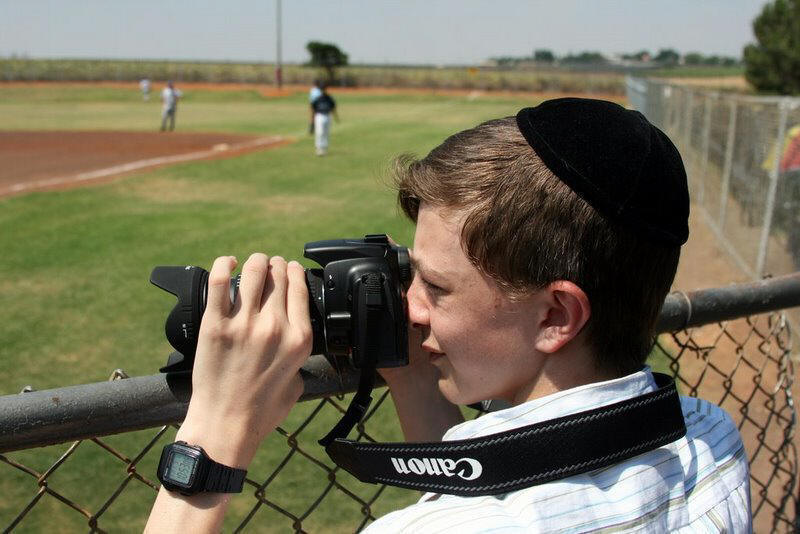
IBL
Photographer
Yehuda Boltshauser
has been documenting how a generation of Israelis
are
learning about American baseball. These photos were taken July 6.
A Lightning 5-3
victory before the onset of Shabbat
GEZER, Israel July 7- It was an early day at the ballparks on Friday, but that
did not seem to bother the Tel Aviv Lightning, who earned a 5-3 victory over the
Modi’in Miracle. The win gives manager Steve Hertz’s second-place Lightning a
6-2 record.
6’5” Australian Adam
Crabb picked up his third win of the season with a stellar pitching
performance. The right-hander, who is unafraid to show his emotion with fist
pumping and enthusiastic leaps after a successful inning, tossed a complete game
allowing just two earned runs on five hits. He received early support from the
offense, including a 3-run homer from right fielder Jeff Hastings.
Down 5-1 in the bottom of the sixth, the Miracle fought back with a home run of
their own, a 2-run blast from catcher Eladio Rodriguez. The homer, which was
Rodriguez’s third of the season, would not be enough as the Miracle drop to 4-4
on the season.
The other game of the day took place at Yarkon Field where the Netanya Tigers
snapped their three-game losing steak to beat the Ra’anana Express 7-3.
A solid performance from lefty Matt Comiter was good enough to give him his first IBL victory. Comiter threw 5 1/3 innings in which he allowed two earned runs on just two hits, striking out six and walking six.
The Tigers scored six of their seven runs in the third inning, but a lot of the credit has to go to a sloppy Express defense that set the table for the Netanya offense. Tigers third baseman Ryan Forsythe put Netanya on the board first with a 2-run single in the bottom of the third. Forsythe, from Tempe, Arizona, went 2-3 with two RBI and one run scored.
Summaries:
1 2 3 4 5 6 7 R H E
Tel Aviv 1 0 3 0 1 0 0 5 3 1
Modi’in 0 0 1 0 0 2 0 3 5 1
W: Adam Crabb (3-0); L: Maximo Nelson (1-1); HR: Jeff Hastings (1), Eladio Rodriguez (3)
1 2 3 4 5 6 7 R H E
Ra’anana 0 0 0 0 1 2 0 3 4 2
Netanya 0 0 6 0 0 1 x 7 9 0
W: Matt Comiter (1-1); L: Max Vasquez (0-2); HR: None
Standings:
Team W L % GB
Bet Shemesh Blue Sox 9 0 1.000 –
Tel Aviv Lightning 6 2 .750 2.5
Modi’in Miracle 4 4 .500 4.5
Netanya Tigers 3 4 .429 5.0
Ra’anana Express 2 7 .222 6.5
Petach Tikva Pioneers 1 8 .111 8.0
Sunday will mark the opening of Sportek as the Petach Tikva Pioneers visit the Netanya Tigers at 5:00 pm. Also on Sunday, the games at Gezer Field and Yarkon Field will be switched to accommodate television crews. At Yarkon, the Bet Shemesh Blue Sox will look to stay undefeated against the Tel Aviv Lightning at 6:00 pm and the Ra’anana Express take on the Modi’in Miracle at Gezer Field at 5:00 pm.
The preceding story was provided by the Israel
Baseball League.
(Return to top)
|
Arts & Entertainment |
 Arts in Review by Carol Davis |
Juxtaposing time and science in Arcadia
SAN DIEGO—Long Before Tom Stoppard wrote The Coast of Utopia, his epic trilogy of the 19th revolution in Russia which garnered seven Tony Awards this year including one for himself and one for The Old Globe’s Jack O’Brien, he wrote Arcadia which won the Oliver Award for Best Play in 1994. In 1968, he was first introduced to American audience with his Tony Award winning play Rosengrantz and Guildenstern Are Dead.
Long before Sean Murray took over the corner suite at 6663 El Cajon Boulevard and did a complete makeover of another theatre space and called it Cygnet, he directed Stoppard’s Arcadia, at the North Coast Repertory Theatre in Solana Beach where he was then artistic director. That was in 1999.
Stoppard, whose formal education ended when he was 17, began his career as a reporter and free lance journalist. His theatrical career began with his writing radio and television plays which ultimately led to his international success starting with Rosencrantz and Guildenstern Are Dead. (More on Stoppard and his Jewish background later)
Arcadia drifts back and forth between early nineteenth century and present day. The way we know which period we’re in, well, the clothes give it away. For six of its seven scenes, the play moves between two worlds, combining the centuries so that in the end, they become one romantic finish.
In Murray’s adaptation, the set which he designed, has a long dining room table as its centerpiece with books piled up along the table with chairs on either end and bay windows lining almost the entire back wall. The entire play, while spanning the centuries, takes place in this front room of an old estate in Derbyshire, England. Outside the estate, a beautiful and orderly park like landscape surrounds the house.
Inside, Thomasina Coverly (Rachael VanWormer) a gifted thirteen-year-old, is being tutored by the young and handsome Septimus Hodge (Matt Biedel) who has all he can do to keep up with the likes of the spirited Thomasina. He has no idea how much turmoil she will throw into his world.
 Thomasina
is not only bright, impetuous and full of surprises for her rather prudish
tutor, she is also a romantic in an age where romantics are scorned and bright
young girls were to be seen and not heard. But Stoppard, in his inimitable way,
while writing on an intellectual level, (moral philosophy, thermodynamics,
quantum mechanics, laws of chaos, Newton’s law of motion) aims for the heart
with Thomasina asking Septimus for a definition of carnal embrace. Stunned to
bumbling, he explains that it is “like the practice of throwing one’s arms
around a side of beef."
Thomasina
is not only bright, impetuous and full of surprises for her rather prudish
tutor, she is also a romantic in an age where romantics are scorned and bright
young girls were to be seen and not heard. But Stoppard, in his inimitable way,
while writing on an intellectual level, (moral philosophy, thermodynamics,
quantum mechanics, laws of chaos, Newton’s law of motion) aims for the heart
with Thomasina asking Septimus for a definition of carnal embrace. Stunned to
bumbling, he explains that it is “like the practice of throwing one’s arms
around a side of beef."
VanWormer and Biedel*
In her studies, when not romanticizing and coming to grips with her own
sexuality, Thomasina has come across Newton’s law of motion when she discovers
it odd that when she stirs jam in rice pudding it will not come together again
if it is swirled in the other direction. From there she goes on to say that if
one could stop every atom in motion, one could write a formula for the future.
Valentine Coverly, (Jason Connors) the now owner of the property, understands that Thomasina was on the right track from reading her diaries, portfolios and letters left behind by the young girl. He finds the books filled with equations that feed solutions from one equation to the next. He can’t understand how she knew this because this process had only been practiced during the past twenty years. But he knew she was right.
Bernard Nightingale (Claudio Roygoza), a visiting university scholar, comes calling to the estate to dig deeper into the works and romances of Lord Byron. He claims to be an expert on the poet. (Nightingale thinks he can prove there was a duel fought at Sidley Park all having to do with infidelity.) If he can prove this, he will become famous. Resisting his inquiries is Hannah Jarvis (Rosina Reynolds) another scholar who wants to restore the decline of ‘that romantic sham of a garden’ at Sidley Park. She studies landscape architecture.
After further investigation, lots of talk and plans to redo the garden, Bernard’s complicated theory is shot down, because of an entry Hannah found in an old gardening book of. Hannah, a victim of that same decline that the garden is undergoing, needs to experience for herself some romance.
Filled with deep philosophical debate of ‘what ifs’, Stoppard finally shifts back to the early 19th century where Thomasina and Septimus dance to the music (a waltz) heard outside the house. She is now 16. He kisses her on the mouth and sends her off to bed. Segue to now, Gus (Zev Lerner) gives Hanna a drawing of Septimus, the Hermit she has been researching, and they too, dance to the waltz.
Following the goings and comings of the good folks at Sidley Park is something like trying to follow the second law of thermodynamics a century before it was discovered (heat cannot pass from a colder body to a warmer body only from a warmer body to a colder body.) It’s like watching a stream of water breaking off into two tributaries and ending up in the same place after taking different paths. It’s a fine mind game while entertaining. Both play periods are loaded with social and sexual intrigue.
Overall the twelve-member cast is pretty much on target. On opening night, Rachael VanWormer a talented young actress, was a bit too screechy as the young Thomasina on opening night. With all the energy she exuded however, it could be overlooked. She is vibrant and full of life and by now, she will have settled into a more even speech patter.
Rosina Reynolds is stately and vulnerable as Hannah. Reynolds, who carries herself with such reassurance, is excellent. Claudio Raygoza worked very hard to be convincing as the super sleuth professor on a quest. He had to believe in his heart he was right. Matt Biedel, a handsome son of a gun, is perfect as Septimus and Jason Connor is relaxed as Valentine.
Jeanne Reith’s costumes, as always, are on target for the two periods and Eric Lotze’s lighting design make all the difference between an OK production and an excellent one.
Arcadia plays through July 29th.
POSTSCRIPTS:
Tomas Straussler, aka. Tom Stoppard was almost 60 years old when he learned that his grandparents were Jewish, and they along with three aunts were killed in the Holocaust when the Nazi’s invaded Czechoslovakia. Stoppard, who was born in Czechoslvakia in 1937 was forced with his mother and brother , because of their Jewish ancestry, to flee to India after fleeing Singapore.
Tomas’s father, Eugene, a physician for his company was sent to Singapore by his company remained there and died in a Japanese prison camp.
Another account tells that his father died when his boat was blown up in 1942 when he followed his family to India.
In India, Stoppard received an American education. Late in 1945 his mother married a British army major named Kenneth Stoppard. When the family moved to England, Tomas’s name was changed to Tom Stoppard.
Tom, who had publicly protested the treatment of Soviet Jews back in 1978, had no idea of his Jewish roots. Shortly after his mother’s death, however, in 1996, Stoppard’s stepfather wrote and asked Tom to stop using the Stoppard name due to Tom’s “tribalization” with Jewish people.
In 1999 Stoppard describes his feelings about his heritage in an article entitled, On Turning Out to be Jewish.
See you at the theatre.
* Photo by
Josh Zimmerman
|
Story Continuations |
Last Jews of Libya...
(Continued from above)
Despite the fact that the majority of the
Roumani family ended up emigrating to America, at their request, Vivienne's
parents, Elise and her husband Yosef, are both buried on the Mt of Olives. One
of Vivienne's Libyan-born brothers remarks in the film that this was more than a
mere gesture—his parents must have wanted to emphasize that Israel is the only
place where a Jew can feel totally at home.
Almost the entire Roumani family is present at the screening as Aryeh, a
thirty-something Manhattan investment banker, gets up at the end to explain why
he produced the film. "I have three kids and I realized I wanted to tell them
where we came from," he told the attentive audience. "This was a project
celebrating family unity," he continued. The film is dedicated to his
grandparents, Elise and Yosef Roumani, who emigrated to America in the 1960s to
join two of their sons studying at American universities.
As we file out of the theater, a tall middle-aged man in front of me says to his
friend:"Very nice, but why would they only come here to be buried, not to live?"
(Return to top)
Lieberman on Iran...
(Continued from above)
While some will no doubt claim that Iran is only attacking U.S. soldiers in Iraq because they are deployed there -- and that the solution, therefore, is to withdraw them -- Iran's parallel proxy attacks against moderate Palestinians, Afghans and Lebanese directly rebut such claims.
Iran is acting aggressively and consistently to undermine moderate regimes in the Middle East, establish itself as the dominant regional power and reshape the region in its own ideological image. The involvement of Hezbollah in Iraq, just revealed by Gen. Bergner, illustrates precisely how interconnected are the different threats and challenges we face in the region. The fanatical government of Iran is the common denominator that links them together.
No responsible leader in Washington desires conflict with Iran. But every leader has a responsibility to acknowledge the evidence that the U.S. military has now put before us: The Iranian government, by its actions, has all but declared war on us and our allies in the Middle East.
America now has a solemn responsibility to utilize the instruments of our national power to convince Tehran to change its behavior, including the immediate cessation of its training and equipping extremists who are killing our troops.
Most of this work must be done by our diplomats, military and intelligence operatives in the field. But Iran's increasingly brazen behavior also presents a test of our political leadership here at home. When Congress reconvenes next week, all of us who are privileged to serve there should set aside whatever partisan or ideological differences divide us to send a clear, strong and unified message to Tehran that it must stop everything it is doing to bring about the death of American service members in Iraq.
It is of course everyone's hope that diplomacy alone can achieve this goal. Iran's activities inside Iraq were the central issue raised by the U.S. ambassador to Iraq in his historic meeting with Iranian representatives in Baghdad this May. However, as Gen. Bergner said on Monday, "There does not seem to be any follow-through on the commitments that Iran has made to work with Iraq in addressing the destabilizing security issues here." The fact is, any diplomacy with Iran is more likely to be effective if it is backed by a credible threat of force -- credible in the dual sense that we mean it, and the Iranians believe it.
Our objective here is deterrence. The fanatical regime in Tehran has concluded that it can use proxies to strike at us and our friends in Iraq, Afghanistan, Lebanon and Palestine without fear of retaliation. It is time to restore that fear, and to inject greater doubt into the decision-making of Iranian leaders about the risks they are now running.
I hope the new revelations about Iran's behavior will also temper the enthusiasm of some of those in Congress who are advocating the immediate withdrawal of U.S. forces from Iraq. Iran's purpose in sponsoring attacks on American soldiers, after all, is clear: It hopes to push the U.S. out of Iraq and Afghanistan, so that its proxies can then dominate these states. Tehran knows that an American retreat under fire would send an unmistakable message throughout the region that Iran is on the rise and America is on the run. That would be a disaster for the region and the U.S.
The threat posed by Iran to our soldiers' lives, our security as a nation and our allies in the Middle East is a truth that cannot be wished or waved away. It must be confronted head-on. The regime in Iran is betting that our political disunity in Washington will constrain us in responding to its attacks. For the sake of our nation's security, we must unite and prove them wrong.
(Return to top)
Arab rhetoric ...
(Continued from above)
Arab response to the expulsion of approximately 8,000 Jews from Gaza continue this pattern of predictability. Dr. Michael Widlanski reported that commercials on PA television and radio repeat the messages found on street signs of Hamas and Jihad: "Gaza First," "Today Gaza, Tomorrow Jerusalem." When children were interviewed on PA television about the Israeli retreat from Gaza one child said: "We are returning to Jaffa and to Haifa."
According to the Jerusalem Post, terrorist Muhammad Deif, who was responsible for the death of hundreds of Israelis, portrayed Israel's withdrawal from Gaza as a triumph for armed resistance, scoffed at appeals that his group disarm, and pledged to fight Israel until it ceases to exist.
"You are leaving Gaza today in shame," he
said. "Today you are leaving hell.
But we promise you that tomorrow all Palestine will be hell for you, God
willing."
At times, the Jews and Arabs appear to be
on parallel planets. The Jews uprooted thousands of its citizens while Mahmoud
Abbas, who denied the Holocaust, refused to disarm the terrorist organizations.
Editor's Note: In reprinting some of Dr.
Grobman's past columns, such as this one written in 2005, we edit for verb tense
while leaving the substance in its original form
(Return to top)
News Sleuths...
(Continued from above)
QUESTION: Is there a divide within the Administration between your diplomatic efforts and Dick Cheney's?
SECRETARY RICE: The Administration, the President and his Administration, are completely supportive of what we're trying to do on Iran. Now, it's not an either/or. I myself believe very strongly in what the President did in January when we had put our carrier strike group into the Gulf to demonstrate that the United States will defend its allies and will defend its interests. It is extremely important that we aggressively go after Iranians and Iranian activities in Iraq when we see them engaging in activities that can threaten our forces.
So yes, there has to be an element to this that sends the Iranians a very strong message that there are coercive elements to our policy as well.
QUESTION: Some people feel we send billions of dollars to the Saudi royal family and some of that money goes to supporting terrorists. How can we ensure that the relationship with the Saudis is sincere and they are not supporting terrorism?
SECRETARY RICE: Well, I think the Saudis are not only not supporting terrorism, they're fighting it. And why? Because it is in their interest to fight it. You might have noticed yesterday that when Zawahiri made his tape, he mentioned the Saudis as one of the targets. Al-Qaida and their types are very much after states like Saudi Arabia as well and we've seen in Saudi Arabia, particularly in the last couple, three years, very aggressive acts against al-Qaida, very aggressive acts to fight terrorism.
Now, there are still charities that we believe are tied up with terrorist financing and the Saudi Government has been working to try to shut those down. Frankly, we didn't understand, the Saudis didn't understand prior to September 11th these networks that sounded like charitable organizations that were actually fronting for terrorist financing. We had to go through a long process of understanding those networks, of using good intelligence information, good financial information to understand those terrorist networks. But I think we have a good partner in Saudi Arabia.
We don't agree on everything, but I do believe that the Saudis, for their own benefit, they're fighting terrorism and fighting it quite aggressively.
>>
QUESTION: A quick question on Russia, which I didn't get to earlier. Does the U.S. have a view about the power transition in Russia? Was it discussed? Will Putin step down?
SECRETARY RICE: Well, I do think that and certainly hope -- but I take President Putin at his word that he will allow the constitutional transfer to take place, that he doesn't have any intention of changing the Russian constitution. It would be very bad for Russia if there was some change in the constitution. But everybody seems to be in Russia -- the buzz seems to be Duma elections and the presidential succession, so I think people expect that there is going to be a change.
We have emphasized that the elections should be free and fair, and free and fair elections don't start on the day of an election. They start with access to the media. They start with the ability of people to assemble and assemble freely. And on those scores, I would hope that Russia would commit to making sure that the elections and the run-up to the elections are really free and fair.
QUESTION: Are free elections always the way to go, though? I mean, you look at free elections in the Middle East. Hamas won. I mean, if we were to see free elections in Lebanon, we know who would win. If you were to see free elections in Venezuela, Saudi Arabia, do we really want to be going down this path of free elections everywhere when fundamentalists and extremists could be leading?
SECRETARY RICE: Well, we did see free elections in Lebanon and Faud Siniora and the March 14th coalition won. Sure, free elections are the only way that people can express themselves. And it can't be the policy of the U.S. Government that we don't want free elections in places that we might not like the outcome. Yes, Hamas won. But with that came certain responsibilities of governing that Hamas has demonstrated it isn't capable of carrying out. And that probably means that the Palestinian people have a clearer idea about what their political options are than if we had not supported the idea of free elections.
I understand that there are places where Islamists seem to be stronger, but the reason that that is the case is that politics has been going on in all of these countries; it's just that the space for healthy politics, the space for moderate forces to grow, has not been there. The only way that you're going to do that is to open up the political system, allow people to express themselves, have freer press. Sometimes you're going to get outcomes that you're not very fond of, but the -- in the absence of free elections you're just going to continue to stifle and smother healthy forces and you're going to continue to have a freedom deficit, which is going to fuel extremism.
Date: July 6, 2007
Time: 2:15pm, Eastern time
Place: U.S. State Department
Spokesman: Sean McCormack, Spokesperson, Secretary of State Condoleezza Rice
Source: State DepartmentTranscript
Subject: Joseph Lieberman, Iran
QUESTION: Can I move on to Iran, please? There's a very strongly worded op-ed in the Wall Street Journal today -- I don't know if you've seen it -- by Lieberman that -- you know, outright accusing Iran of having declared a kind of -- well, actually, an undeclared war against the U.S. using these proxies across the region. Is it not time for swifter action in the Security Council? Is it not time for something beyond -- measures beyond sanctions now? Can you tell me where we are in the process with all this?
MR. MCCORMACK: In terms of -- and I don't want to mix apples and oranges. The Security Council action right now is focused on Iran and trying to stop them from developing their nuclear program. I can't tell you whether in the course of that discussion that other members aren't going to perhaps want to take into account other aspects of Iran's behavior that is clearly outside the accepted international norms. We'll see in the course of this debate.
Certainly, none of the headlines in the news reports concerning Iran's action in Iraq and throughout the region and around the globe for that matter does Iran's reputation any good. Very clearly, this is a government that has a cloud over it, and that cloud is only getting darker. It is only growing. Not because of any actions that we or the Security Council or anybody else has taken, but through their own actions.
And that's going to have costs. That is going to have costs in the international financial system. That is going to have costs in the business community. Without governments even acting, businesses are going to ask questions of themselves: Do we really want to do business with this government if our reputations are somehow going to be sullied by interacting with this government or some of these government entities? So that's one aspect to this.
We're right now talking to the Security Council partners about some of the building blocks, the elements of a potential Security Council resolution. And I would expect that over the coming weeks that that activity is going to pick up steam, it's going to become more focused on drafting language for a resolution. I can't -- I'm not going to try to predict for you right now what sort of timeline. I never predict what timeline the Security Council is going to act on.
We also are working on a bilateral basis with various other countries. As I said, concerning Iran's interaction with the international financial institution, this is a process that was begun by the Treasury Department, Secretary Treasury Paulson, Under Secretary Stuart Levy. And so we're going to continue that -- traveling -- working with European banks, financial institutions, as well as some of the Asian banks, Japanese banks as well.
And then lastly, we're going to make sure that, as President Bush said, that our forces protect themselves and they are going to act against any individuals who are seeking to do them harm. And if that means rolling up some of these EFP networks, that's what they're going to do. And we've seen evidence that our military forces in Iraq are going to take steps to protect themselves. We've seen various people arrested, various people detained. And I would expect that if Iran continues in supporting these networks, then we're going to continue to go after them.
QUESTION: Yeah, as you said, we're seeing, you know, more and more evidence every day. We've got satellite pictures now of this Imam Ali base, the training camps. Lieberman's calling for a unified message, a bipartisan message when Congress reconvenes next week to provide some kind of stronger deterrent stronger than sanctions. I know sanctions are specific in the nuclear issue, but there seems to be this mounting consensus that Iran really needs to be put on notice. What's your reaction to that?
MR. MCCORMACK: Well, I think they have been put on notice. I don't think there's any mistaking the message that we are sending to the Iranian regime.
And it's not just us. The Iraqi Government doesn't want to see Iran taking any measures to destabilize the situation there and countries around the world -- I think you're -- you know, other than some outliers like Venezuela and a few others that you can count on one hand, there's a clear message being sent to Iran. I think Iran has been shocked by the fact that countries like Russia and China have voted against them in the Security Council, voted against them in the IAEA Board of Governors.
So Iran, I think, finds itself isolated and it's only going to find itself more isolated if it continues with the kind of behavior patterns that we've seen over the past months and years.
QUESTION: Are you anticipating another meeting shortly similar to the Crocker meeting you had a few weeks ago, the ambassador-level meeting?
MR. MCCORMACK: Nothing planned at this point.
QUESTION: No?
MR. MCCORMACK: No, we would like to -- we would like to see a change in Iranian behavior. That was the message that Ambassador Crocker sent when he met with the Iranian representative last time. Thus far, I don't think we've seen, at least as far as I know, much evidence of a change in Iranian behavior.
QUESTION: Are the Iraqis pushing for another meeting?
MR. MCCORMACK: They would like to see a meeting. I don't think there's been a formal request, but it's no secret. In public, they have talked about their interest of -- in having a meeting. We understand that. It's only natural, where Iraq has Iran as its neighbor; that's not going to change.
QUESTION: Is this something the United States would be open to, another meeting to thrash this out, this mountain of -- sharing this evidence?
MR. MCCORMACK: Again, we -- you know, again, we -- if the opportunity presents itself and we think it's the right moment to seize that opportunity, we will. At this point, I don't think we would make that assessment, but it's something that we hold open. We still have not yet seen any change in Iranian behavior, though.
Key: >> Intervening questions were on unrelated topic or topics.
Both knew the time ...
(Continued from above)
As she was going down the steps from the grave site to a walking bridge, she saw a young man approaching the bridge from the opposite direction. She was immediately taken by him - she felt she was looking at an angel. He too was crossing the bridge. She looked down at her watch because she didn't want to stare at him but her heart was pounding as she crossed the bridge with this stranger. Little did she know but he had the exact same reaction to her and he also started looking at his watch to avoid staring. There was no conversation on that bridge but they both knew what time it was.
When Noa arrived at the lecture, it was big and crowded and there were not many more seats. Noa found a seat for herself and some friends. Just then she saw her good friend Gila seated on the other side of the auditorium. She asked Gila to join her, but Gila said she had had an exhausting day and was too tired to move. Noa managed to find exactly enough seats for everybody and moved her party to Gila's side of the room.
As Noa was about to finally sit down, she heard a voice calling her name. It was Yosef's mother Miriam, who was also seated on that side of the room. Had Noa not moved to that side of the huge crowded room, Miriam never would have seen her. Miriam now told Noa all about her son Yosef, and suggested they go on a date. Noa said sure, why not
give it a try. Miriam pointed out her son to Noa who was shocked to see that this was the "angel" on the bridge. He was equally delighted when he discovered who she was. Yosef and Noa dated and it did not take long for them to get engaged and the rest is history.
Had she not stayed in Tzfat, had Yosef not gone to Tzfat, had Gila not been exhausted, had there not been just enough seats to move to the other side - had so many things not happened precisely as they did - Yosef and Noa never would have met. When something is meant to be, Hashem will move heaven and earth to make it happen.
Dedicated by Ricky and Ashira Kramer in honor of ShulWeek and Rabbi Lederman for enhancing our Shabbos table with inspiring Divrei Torah. Dedicated by Cliff Alsberg in honor of his wife Laurie, and children Adam and Naomi whose 7th and 9th birthdays are right around the corner.
(Return to top)
Documentary hypothesis...
(Continued from above)
A leading advocate
of a competing theory is Professor Gary A Rendsburg of Rutgers University, who
sees the literary structure (called redactional structuring), specifically of
Genesis, differently and with its own carefully crafted message.
He emphasizes that the Biblical writings were for centuries “read” out loud to
First Temple Israelites, most of which could not read text. Listeners however
related to and learned the stories of these early writings, by astute
listening. They discerned when a certain uncommon word or phrase was used first
in one context, later to reappear again in another context. They also
recognized and understood literary devices such as alliterations, puns and word
play, metaphors, onomatopoeia, homonyms, and themes and order within stories,
which provided insights and connections between the various stories—including
double entendres and subtext meanings.
Against this background, Rendsburg identifies major themes in the Genesis stories, and remarkable story construction effects. Key themes in the Genesis material (and beyond) are: 1) The Barren Woman, and 2) The Younger Son. The purposes of these themes, he argues, are two-fold, literary and theological. The concepts: barren women ultimately giving birth, and a younger son superseding his older brother, represent the atypical, therefore are enticing literature. At the same time, these themes support the underdog, i.e. theologically the Israelite nation’s “self-definition.”
Rendsburg identifies the three main stories in Genesis to demonstrate its literary structure. These are the Abraham and Jacob cycles, and the Joseph “novella.” These are told in a chiastic structure (from the Greek letter Chi, which looks like an x and suggests that the patterning is to be visualized as technically the left half of an x). The stories build up with identifiable episodes: A>B>C>D>E>to a pivot point, after which parallel equivalent episodes are repeated in reverse order E’>D’>C’>B’>A’. In the case of the Abraham cycle, these are:
A Genealogy of Terah
B Start of Abram’s spiritual odyssey
C Sarai in foreign palace; ordeal ends in peace and success. Abram and Lot part.
D Abram comes to the rescue of Lot and Sodom
E Covenant with Abram; annunciation of Ishmael
Pivot point
E’ Covenant with Abraham; annunciation of Isaac
D’ Abraham >angels come to the rescue of Sodom and Lot
C’ Sarah in foreign palace; ordeal ends in peace and success; Abraham and Ishmael part
B’ Climax of Abraham’s spiritual odyssey
A’ Genealogy of Nahor
In addition, each of the matching episodes is linked by a series of key words, e.g. lekh lekha, “go forth” in B and B’. Similarly the place names Moreh in B and Moriah in B’.
Similar constructions are present in the Jacob and Joseph narratives. In addition the Biblical redactor deals with the primeval stories preceding Abraham in an analogous redactional structure, only in these first 11 chapters of Genesis he creatively employs a pure parallel structure instead of the chiastic structure: A>B>C>D>E (Chapters 1:1-6:8), followed by A’>B’>C’>D’>E’ (Chapters 6:9-11:26). He also insinuates linking materials between the above main stories.
Rendsburg credits the initial observations for his thesis to Umberto Cassuto of Hebrew University in the 1950’s, but who died before he fully explicated his discovery. Michael Fishbane (1979), U. of Chicago, and Jack Sasson, Vanderbilt U., furthered the work, and Rendsburg completed the packaged thesis, in his The Redaction of Genesis (Eisenbrauns, 1986). He concludes that the Biblical redactors intended to show the hand of G-d in such literary unity. “A theological message shines through: There is a divine presence in Israel’s history, the redactional structure serving as the blueprint thereof.”
I would argue that
Friedman’s and Rendsburg’s theses are not mutually exclusive of each other.
When one looks carefully at the Biblical texts, with both scholars’ works as
guides, there is good reason to conclude that the Biblical editors were
multifaceted geniuses, capable of conveying messages on multiple levels to our
early ancestors.
Dr. Jacobs is what is described in academia as a "returning student."
Retired from one successful career, he now is doing advanced studies for
pleasure at UC San Diego. The foregoing article was an article he wrote
last semester for a class in Jewish Studies.
 A
papal order allowing the use of the 16th Century Tridentine Mass (Latin
Mass) includes the prayer used in the Good Friday liturgy from the 1962
Missal, "For the conversion of the Jews. Let us pray also for the Jews that
the Lord our God
A
papal order allowing the use of the 16th Century Tridentine Mass (Latin
Mass) includes the prayer used in the Good Friday liturgy from the 1962
Missal, "For the conversion of the Jews. Let us pray also for the Jews that
the Lord our God
